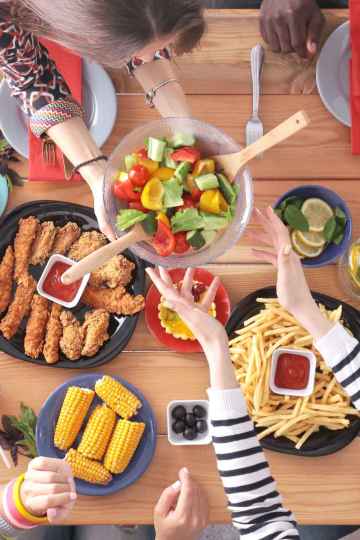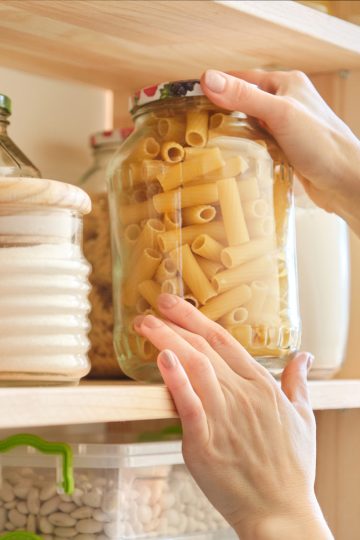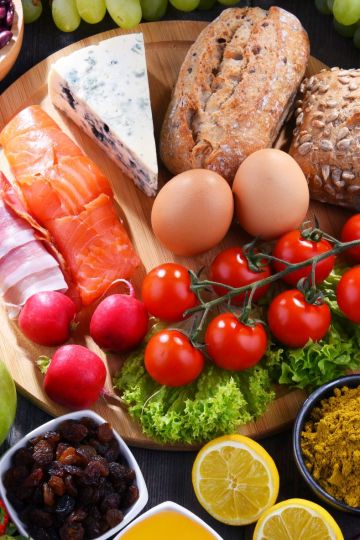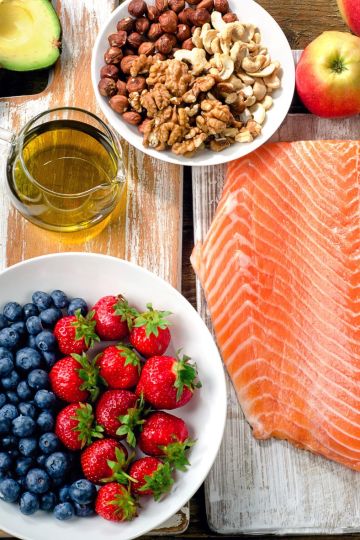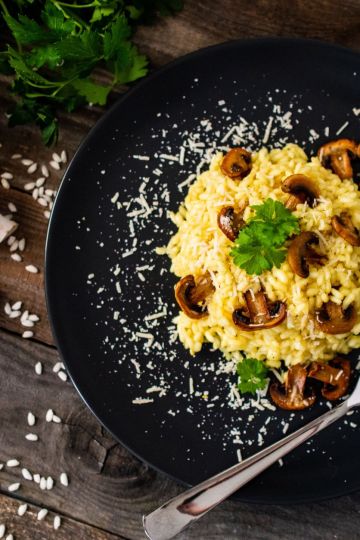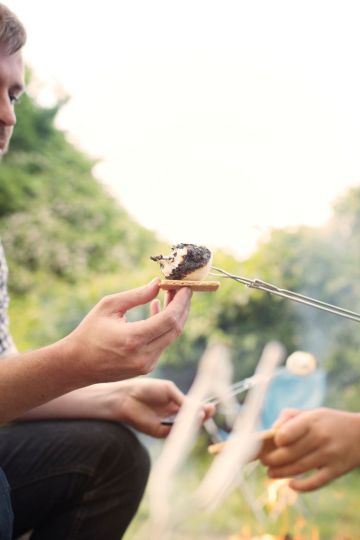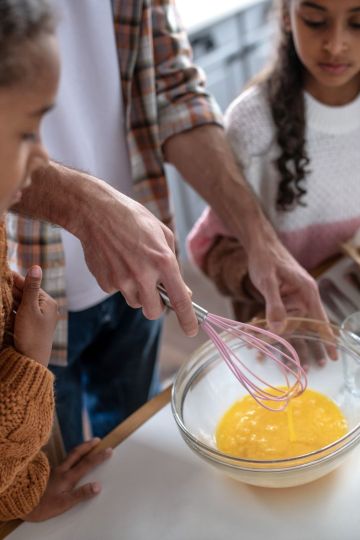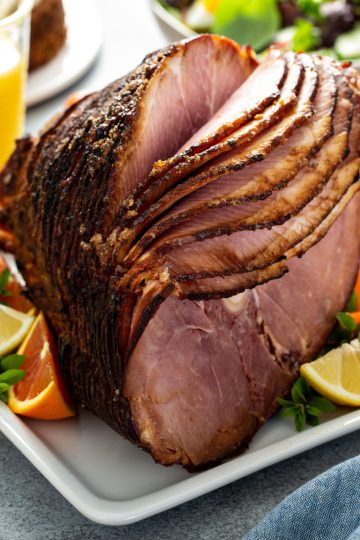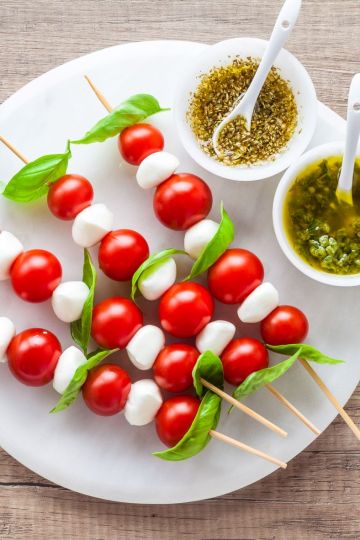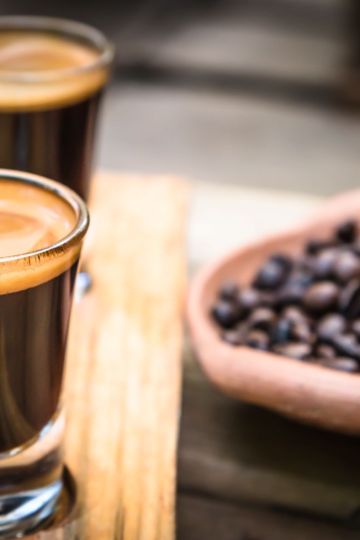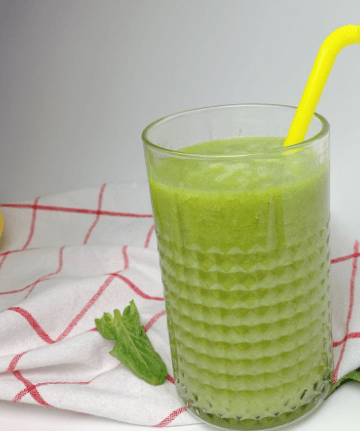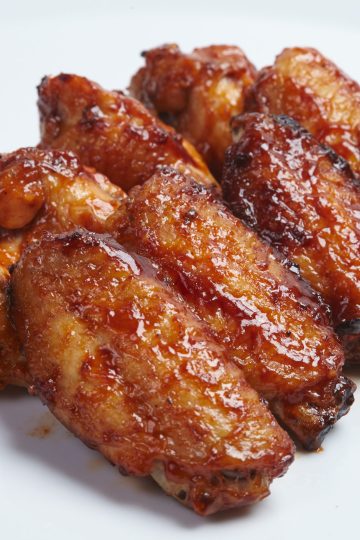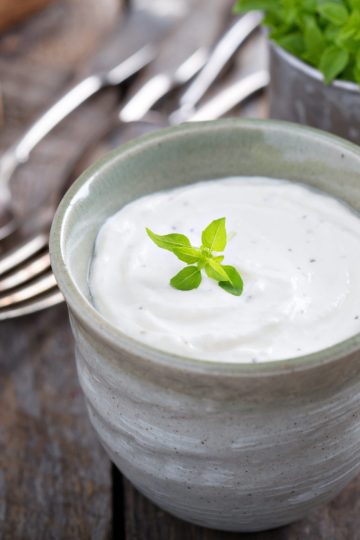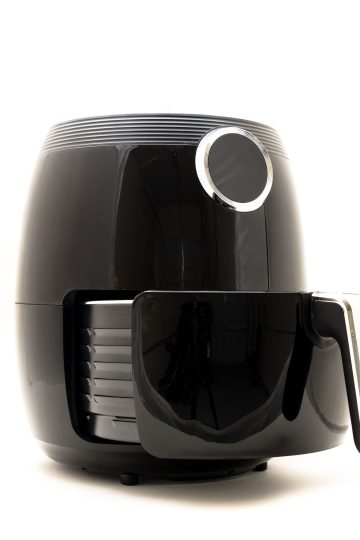The Anker SOLIX EverFrost Electric Cooler: Revolutionizing Outdoor Adventures In the ever-evolving world of outdoor gear, the Anker SOLIX EverFrost Electric Cooler stands out as a game-changer. This innovative cooler is designed to keep your food and drinks cold without the need for ice, making it a must-have for campers, road trippers, and outdoor enthusiasts. […]
Latest Posts
Quick Meal Ideas for the Vegetarian
I’ll be honest - being a vegetarian in 2023 is a lot easier than before the 2000’s era. There are a number of products that make it easier to transition to vegetarian - especially if you came from meat: Beyond Meat Burgers, “Chick” Patties, Fake Meat Crumbles, Plant Protein Powder, to name a few. If […]
Grocery Gold (part 3)
Food to inspire healthy habits in kids and help make meal-times fun Pantry and Non-Perishables This is the trickiest part of the grocery store, so go it at your own risk and do not (do not!) shop hungry or in a foul mood. The reason being is these aisles are stock, I mean loaded, with […]
Grocery Gold (part 2)
Food to inspire healthy habits in kids and help make meal-times fun Dairy & Chilled Aisle: While everyone’s dietary needs are different and things like allergies, religious beliefs, doctors orders, general food restrictions, and any goals or training needs must be taken into consideration, we’ve found that by going section by section through the grocery […]
Grocery Gold (part 1)
Food to inspire healthy habits in kids and help make meal-times fun It can be terribly frustrating to grocery shop for a family, and lets face it kids can be picky eaters which makes the difficult task of modern day hunting and gathering down right impossible. So the team here at Kookist wanted to share […]
Mushroom & Asparagus Risotto
I made this with my 5 year old. She can be somewhat choosy in her foods but is really enjoying learning in the kitchen and having a hand in all things meals. We had a lot of fun with this one and the finished product was excellent. I’d suggest being casual with the ingredients and […]
Winter Festival
Although it may not feel like Winter is coming; a few quick nights of temperatures dropping down into the 20s can happen quickly once November hits. Once Winter does come, this throws us all into great nostalgia of our winter childhood: snow, sledding, a good fire, cookies, decorations, hot cocoa, Santa, and much more. The […]
Backyard Fall Festival
Build Your Own Backyard Fall Festival! Who doesn’t love the fall? Everything from cooler weather, the return of many professional sports, to the sounds and tastes of the season - think apples, cider donuts, and crinkly piles of leaves that demand to be jumped in! One of the Kookist family’s most favorite pastimes during this […]
Quick Meal Ideas for a Family
Fresh Basil, Mozzarella, and Tomato Sandwiches While Summer may be coming to a close, bring those fresh flavors back and remember the warmer, slower months that summer tends to bring. For my daughter and I, nothing screams hot weather and lazy days like our favorite BMT (or Margarita) Sandwiches. Bonus points for sourcing the basil […]
Level Up Your S’More Game
4 Top Tips to Make your S’mores Next Level! Nothing beats huddling up around the campfire with family, friends all while watching imaginations come to life while you roast marshmallows and make S’mores! We here at Kookist are big believers in what the outdoors and related experiences can teach kids so when you get a […]
Kookist at the Beach - Kids Activities
The Kookist team ended up spending an entire week together this summer at the Outer Banks in NC. We then decided to invite another family, which made a total of 6 adults and 6 kids. Even in a large house; it’s imperative to have activities for kids so they feel engaged during vacation (we didn’t […]
Cooking with Kids on Vacation: A Fun and delicious way to spend time with your family!
It seems like everyone is catching up on lost vacation time since the start of the pandemic - even with high gas prices, summer vacations seem to be at an all time high. Here at Kookist we love vacations too - and we wanted to share some ideas with you on simple recipes for dinner […]
Kookist at the Beach!
A guide for multiple families sharing a house together. Vacations are great, and friends can make them that much better! For the Kookist family we set out to discover what makes a great trip and along the way provide some tips, recipes and inspiration to help take the fun to the next level. When we […]
Its Popsicle Time
Summer is just getting started here in the Carolinas and it’s time to slow things down and enjoy a cold treat. This is the perfect time of the year to help get kids acclimated to the kitchen and practice simple tasks like measuring, pouring, and safety. My wife and our 4 year old decided to […]
8 Ways to Get Your Kids Helping in the Kitchen
The kitchen can be a dangerous place, with appliances, sharp knives, and hot pans all around. But with your help, your kids can start to learn how to cook and bake as early as age 4—and as they get older, they’ll gain skills that will help them survive in the real world! And if you’re […]
Outdoor Picnic Ideas For Kids That Will Make You the Coolest Parent Ever
We all know the feeling – it’s a gorgeous summer evening, and you’re ready to have an outdoor picnic with your family. But you have no idea how to go about it! Kids can be picky eaters, so coming up with something they will love can be tough – especially if you don’t know how […]
5 Tips for Keeping Your Kids Safe in the Kitchen
How safe are your kids in the kitchen? If you’re like most parents, you probably don’t know where to start when it comes to keeping them safe around hot stoves and sharp knives. But with these simple kitchen safety tips, you can keep your kids safe in the kitchen while still preparing meals with them […]
Fun and Easy Fathers Day Recipe For Kids
Father’s Day is fast approaching, and if you’re planning on showing your dad how much you care by making him something delicious, you might find yourself scrambling to put together an appetizing meal on short notice with very little help from your kids. But it doesn’t have to be that way! With these fun and […]
3 Easy Ways to Create a Memorable Mothers Day for the Mom in Your Life
How do you celebrate the mother in your life? A thoughtful card? Dinner at her favorite restaurant? A spa gift card? Although these gifts and events can be nice, there are plenty of other creative ways to celebrate mothers day that won’t have your mom saying; ‘that’s nice, dear’ when she opens it. Here are […]
Top 2022 Gardening Trends to Try in Your Backyard
Using your yard as an outdoor space to grow vegetables, herbs, and plants can be fun and rewarding in so many ways. But if you’re not careful, your garden can end up looking and feeling like just another weed-filled part of your yard that no one ever notices. Pay close attention to these top trends […]
7 Fun Spring Activities to Do Together as a Family
When the weather turns nice, it’s time to bring the kids outside! Here are some fun spring activities you can do together as a family, indoors or out. With just some simple materials and some time, you can create memories that will last all year long. 1) Play a classic game of Tag! There’s nothing […]
Easy Easter Ideas for a Great Meal at Home
With Easter on the horizon, you might be wondering what to serve at your dinner table this year. The Easter dinner table should be festive and fun, but it also needs to satisfy everyone with the right balance of colors, tastes, and textures. Here are eight easy Easter dinner ideas that will have your family […]
Finger Salads - A Guide to Finger Salads
Finger salads are so named because you eat them with your fingers (no utensils needed!). They can be made in large batches and stored in the refrigerator, so they’re an excellent choice for potlucks or casual gatherings where you don’t know how many people will show up, and they’re healthy because they’re not fried like […]
The Ultimate Guide to European Coffee Makers
European coffee makers are more and more popular these days, which means there’s even more to choose from on the market! From drip coffee machines to espresso makers, European coffee makers give you the freedom to create your perfect cup of coffee. Here’s our ultimate guide to European coffee makers, so you can make the […]
Healthy Anti-Inflammatory Mango Ginger Smoothie Recipe Video
It’s important to keep our bodies healthy, strong, and working to ward off illnesses. More and more research is coming to the surface indicating that while exercise and healthy habits like maintaining adequate sleep, stress reduction, and zero to moderate alcohol intake are important, what you put in your body is just as, if not […]
Best Frozen Pizzas You Can Buy
Pizza is a favorite food of many people. Frozen pizza is a convenient, easy meal choice for busy families and small groups alike. Its a popular meal which can be prepared in less than half an hour and with little effort. By providing something akin to a ‘blank canvas’, frozen pizza allows you to customize […]
Best Sour Candy 2022
Sour Candy has gained a lot of attention in recent times. These delicious candies may be a little cruel, but they’re also a lovely treat! Therefore, people both love and hate sour candy. Despite these extreme opposing reactions everyone should give their taste buds a thrill ride and try the most sour candies at least […]
A Beginner’s Guide to Air Fryer Chicken Wings
Courtesy: https://platedcravings.com/ Introduction to Air Frying An air fryer is a small piece of equipment that can be used to cook a variety of foods safer and without the large amount of oil required for traditional fryers. In most home kitchens, you’ll find standard or convection ovens. In a standard, non-convection oven air is heated […]
Best Horseradish
There is nothing quite like the taste of freshly prepared horseradish sauce. It is simple to prepare and an essential ingredient in many dishes, but the fresh flavor that it adds makes all the difference. Horseradish is a spicy, bitter root that is often used in condiments. It has been used for centuries as a […]
2022 Top Personal Air Fryers for Small Space Kitchens
Inadvertently filling up space in your kitchen with kitchen equipment/tools can be easy to do when you have a small-sized kitchen. However, there is certain equipment that you should consider adding to your kitchen regardless of your arrangement. One of them is an air fryer. Although air fryers are similar to deep fryers, in that […]
